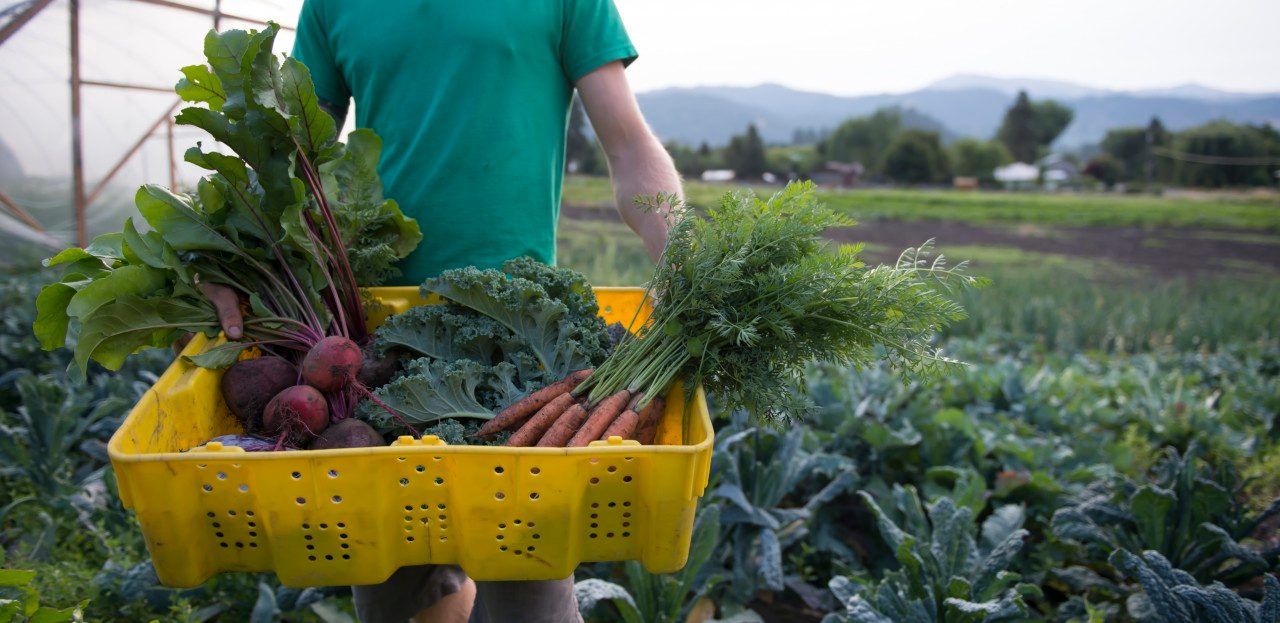Is Eating Organic Worth It?

The demand for organic produce is growing exponentially, but is it really necessary to eat strictly organic to minimize exposure to pesticides?
I have a friend who exclusively buys organic produce. She has asthma and works very hard to maximize her health and wellbeing by eating well and exercising often. I admire her commitment. But when she’s stayed with me and has shown up with organic bananas, I’ve wondered about some aspects of her all-organic diet.
My friend isn’t alone. According to recently released data from the Organic Trade Association, sales of organic products in the United States in 2015 hit a record high of $42.3 billion, up 11 percent from the previous year’s record, and far exceeding the 3 percent growth rate of the overall food market.
YOU MIGHT ALSO LIKE: What Exactly Are Antioxidants?
The U.S. Department of Agriculture (USDA) recently announced that the number of certified organic operations also hit a record high in 2015. According to USDA, the number of certified organic farms and operations in the United States grew to a total of 21,781 in 2015, up by nearly 12 percent from the previous year.
It’s not surprising that the demand for organic products is growing. People are increasingly aware of the negative impacts of mainstream food production methods. Organic foods obviously contain lower levels of pesticide residues than non-organic, which is better for people’s health, especially children.
Additionally, organic farming has less of an environmental impact. For example, runoff water from an organic operation won’t impart harmful chemicals into local waterways, and because organic farmers aren’t using synthetic pesticides and fertilizers, these operations use less energy than conventional farms.
Clearly there are many benefits to going organic. But can you still get benefits from improving your diet — swapping out those chips for some crunchy carrots, or substituting an apple for that bowl of ice cream — even if you’re not eating organic?
It depends on which ones you choose, according to the Environmental Working Group (EWG), a non-profit organization dedicated to protecting human health and the environment. Although it’s clear from the growing demand that people want to eat more organics, EWG recognizes that many people either can’t find or can’t afford an all-organic diet. The “Shoppers Guide to Pesticides in Produce” is EWG’s response to this dilemma. The guide has been published every year since 2004 and includes the “Dirty Dozen” — a list of conventional foods containing high amounts of pesticides — and the “Clean Fifteen” — a companion list of conventional foods that typically contain no or very low amounts of pesticides. EWG bases its recommendations on data derived from thousands of samples taken by the USDA.
YOU MIGHT ALSO LIKE: The Health Benefits of Walnuts
The good and the bad
This year, topping the list of produce with the highest pesticide loads is strawberries. Also on the list are apples, nectarines, peaches, celery, grapes, cherries, spinach, tomatoes, sweet bell peppers, cherry tomatoes, and cucumbers.
Topping the list of produce with the least amount of pesticide residue was avocados. Also on the list: sweet corn, pineapples, cabbage, sweet peas, onions, asparagus, mangoes, papayas, kiwis, eggplant, honeydew melon, grapefruit, cantaloupe, and cauliflower.
EWG also cautions against eating non-organic kale, collard greens, and hot peppers because they carry especially toxic pesticides. The Dirty Dozen list highlights produce with the highest number and concentrations of pesticides. Although leafy greens and hot peppers didn’t meet this criteria, the types of pesticides used on these crops are so toxic a special Dirty Dozen PLUS category was created to highlight the dangers of eating non-organic varieties of these foods.
Although not on the dirty list, EWG also notes that the average potato had more pesticides by weight than any other produce, which makes the argument for going organic when buying them.
Although they are on the Clean Fifteen list, EWG also notes that some sweet corn, papaya, and summer squash sold in the United States is produced from genetically modified organism (GMO) seeds. If you want to minimize your exposure to GMOs, buy organic varieties of these foods.
What to do instead
If you’re not able to buy an organic variety of a particular food, make sure you wash the produce, which helps remove pesticides. Peeling the skin off some produce, for example cucumbers, can also reduce your exposure. Additionally, pesticide levels are typically reduced when food is cooked.
You don’t have to eat all-organic to realize the benefits of incorporating more healthful fruits and vegetables into your diet. You can avoid produce typically containing high amounts of pesticides by choosing organic varieties of fruits and vegetables on the Dirty Dozen list, and can feel confident that conventional fruits and vegetables on the Clean Fifteen list are safe.
Updated:
April 09, 2020
Reviewed By:
Janet O’Dell, RN